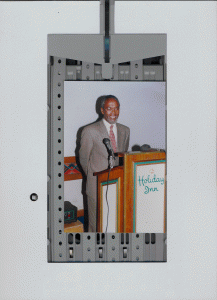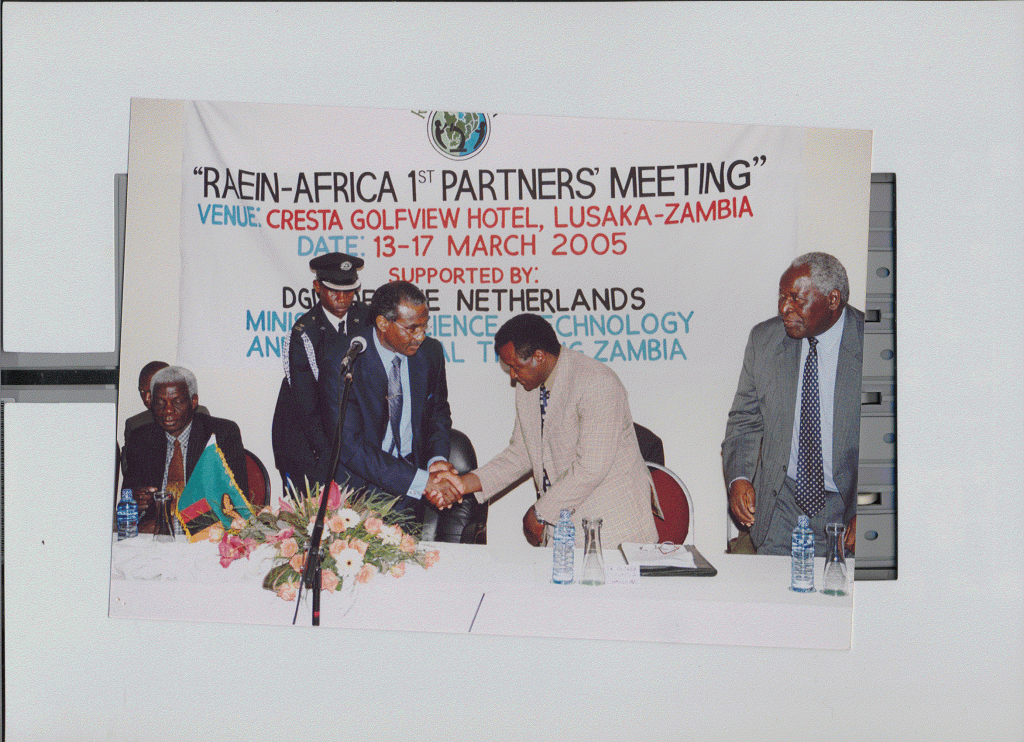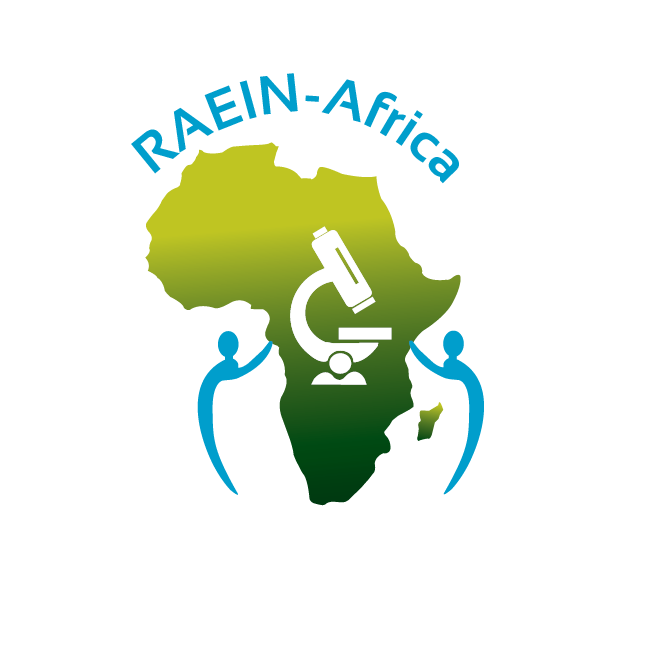RAEIN-AFRICA – A HISTORICAL PERSPECTIVE
RAEIN-Africa evolved from successful execution of a long term research program, funded by the Government of the Netherlands (DGIS) between 1995 and 2010, on “Development of Pro-poor biotechnologies through participatory, need-driven research and institutional innovation” (referred to in the literature as the “DGIS Biotechnology Project”) implemented in Columbia, India - Andra-Pradesh, Kenya and Zimbabwe.

The need for an African regional initiative on participatory, interactive, bottom-up approach for biotechnology development was initially validated at a workshop held in Harare, Zimbabwe in 2000, organized to share experiences and lessons from the DGIS Funded Programme.
A gap analysis and needs assessment study supported by the DGIS of the Netherlands was implemented in southern and eastern African countries in 2001. Results were shared at the “Eastern and Southern African Biosafety Needs Identification” workshop held in Kampala, Uganda, in 2001. Considering the existence of ASARECA in eastern Africa, the workshop called for a southern African regional initiative to facilitate linkages between science and technology, policy, and society, and empower national governments to create an enabling environment for access and safe use of emerging technologies; thus mandating the establishment of RAEIN-Africa.

RAEIN-Africa was launched in 2004 in Lusaka, Zambia. The Government of the Republic of Namibia offered to host the RAEIN-Africa secretariat. The Regional Secretariat was housed within the Namibian Ministry of Education Directorate of Science, Technology, and Innovation from February 2004 to February 2013.
External evaluation of RAEIN-Africa was carried out in 2012 (Evaluation Report 2012), resulting in the relocation of the regional office to South Africa in 2013.
